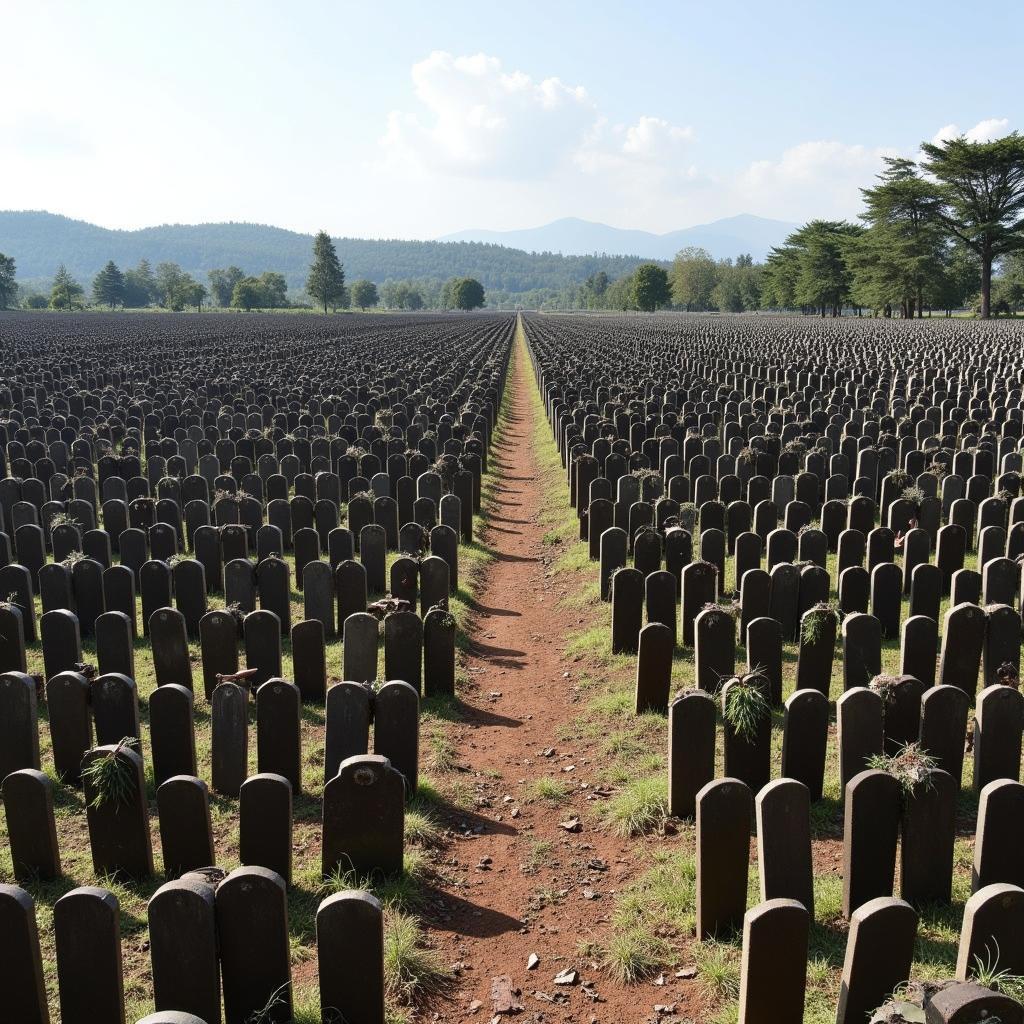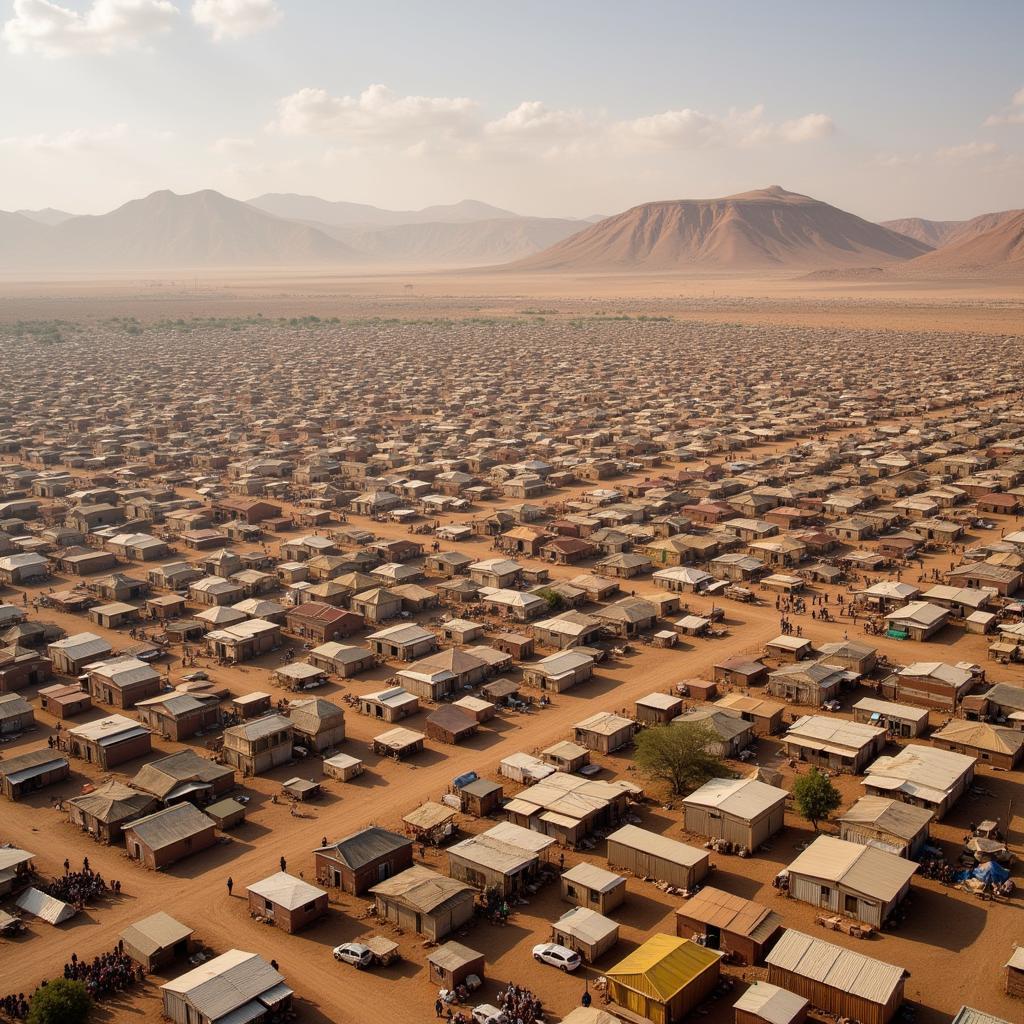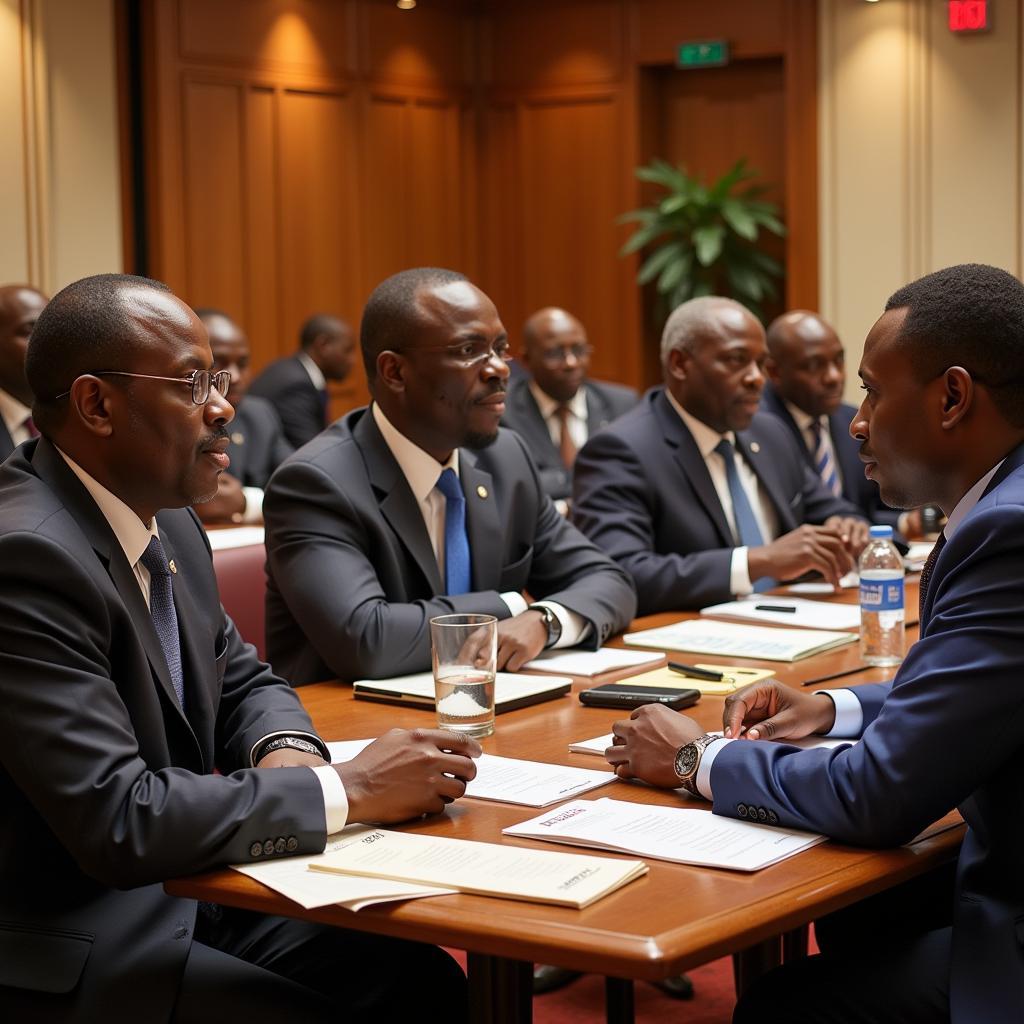The Dark Shadow of Genocide in an African Country
The phrase “African Country Genocide” immediately conjures up images of the horrific Rwandan genocide of 1994. While this event remains a stark reminder of humanity’s capacity for violence, it’s crucial to understand that genocide in Africa, as in any other part of the world, is a complex issue with deep roots and far-reaching consequences. This article delves into the historical context, contributing factors, and lasting impact of genocide in Africa, with a focus on understanding and prevention.
Understanding the Roots of Genocide
Genocide doesn’t occur in a vacuum. It is often the culmination of long-standing tensions, political manipulation, and systematic discrimination. To truly grasp the gravity of “African country genocide,” it’s essential to examine the historical and socio-political landscape that creates fertile ground for such atrocities.
Colonialism and its Legacy
The legacy of colonialism casts a long shadow on many African nations. The arbitrary drawing of borders by colonial powers often grouped together communities with historical animosities, laying the foundation for future conflicts. Furthermore, the “divide and rule” tactics employed by colonial regimes exacerbated existing tensions between ethnic groups, creating a climate of mistrust and competition for resources.
The Role of Ethnic Identity
While ethnicity itself is not inherently a cause for violence, it can be manipulated and exploited to serve political agendas. In many African countries, ethnic identity has been politicized, leading to a dangerous “us vs. them” mentality. This manipulation often manifests in discriminatory policies, hate speech, and ultimately, violence directed towards specific groups.
 Memorial site of the Rwandan Genocide
Memorial site of the Rwandan Genocide
Economic Inequality and Competition for Resources
Scarcity of resources, coupled with economic inequality, often fuels tensions and conflicts that can escalate into violence. When one group is perceived as having preferential access to resources or political power, resentment and hostility can fester, creating a volatile environment susceptible to manipulation by those seeking to exploit these divisions.
Beyond Rwanda: Cases of Genocide in Africa
While the Rwandan genocide is perhaps the most well-known, it’s crucial to acknowledge other instances of genocide and mass atrocities that have plagued the African continent.
The Darfur Genocide
Beginning in 2003, the Darfur region of Sudan witnessed a brutal campaign of violence targeting non-Arab populations. Government-backed Janjaweed militias carried out widespread killings, rape, and displacement, resulting in the deaths of hundreds of thousands of people.
 A sprawling refugee camp in Darfur
A sprawling refugee camp in Darfur
The Herero and Namaqua Genocide
Taking place from 1904 to 1908, the Herero and Namaqua genocide in German-occupied South West Africa (present-day Namibia) stands as one of the first genocides of the 20th century. The German colonial government systematically exterminated the Herero and Namaqua people through forced labor, starvation, and imprisonment in concentration camps.
The Rwandan Genocide
The Rwandan genocide, in which Hutu extremists systematically killed an estimated 800,000 Tutsi and moderate Hutu people over the course of 100 days, remains a chilling reminder of the human cost of unchecked hatred and the international community’s failure to intervene effectively.
Preventing Future Atrocities
The international community has a moral obligation to prevent future genocides and hold perpetrators accountable for their crimes.
Early Warning Systems and Conflict Resolution
Investing in early warning systems and conflict resolution mechanisms is crucial. This includes supporting civil society organizations working on peacebuilding initiatives, promoting dialogue between conflicting parties, and addressing the root causes of tension and resentment.
 Summit of African leaders discussing peace and security
Summit of African leaders discussing peace and security
International Justice and Accountability
Holding perpetrators of genocide accountable is essential for deterring future atrocities and achieving justice for victims. The International Criminal Court (ICC) plays a vital role in investigating and prosecuting individuals accused of genocide, crimes against humanity, and war crimes.
Moving Forward: Reconciliation and Healing
The aftermath of genocide leaves deep scars on societies. Reconciliation and healing are long and complex processes that require truth, justice, and a commitment to building a more inclusive and equitable society.
Conclusion
The phrase “African country genocide” should serve as a stark reminder of the human capacity for violence and the devastating consequences of unchecked hatred. By understanding the root causes of genocide, supporting early intervention efforts, and advocating for international justice, we can work towards a future where such atrocities are never repeated.
